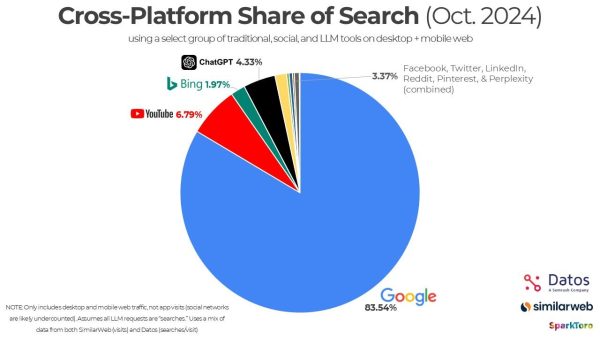There is no doubt that AI is one of the most revolutionary technologies developed by humans since the internet. We all use it every day for editing and creating content, including text, images, videos, and more. It is also used in many other applications, including military ones.
Working for Search Engine People (obviously a search marketing company), we often get asked by clients whether AI will replace traditional search engines. To answer this question, I will focus more on ChatGPT in general and specifically on ChatGPT search.
Before moving forward with answers, please keep in mind that Google themselves are no longer a traditional search engine; they have already introduced their own version of AI-powered answers, named Search Generative Experience (SGE).
The 10 Blue Link Search Result Pages
What are the blue links? When search engines first started, they typically displayed 10 clickable blue links with a description beneath each one. Over time, they evolved to include images, videos, addresses, and more.
For a long time, any search result page would have a link or a reference back to the source. A few years ago, Google introduced featured snippets that include instant answers (ranking at position 0), where Google provided answers from their own system without referring back to the source—what I will be calling in this post 'linkless' and 'reference-free' results.
When ChatGPT was released in 2022, almost all answers were link-free and reference-free.
According to Google CEO Sundar Pichai, links in search will live on, and quick answers will be used where appropriate.
AI Linkless And Reference-free Results:
This type of result is currently used mainly by ChatGPT (not for all terms, mostly informational) and less so by SGE/Google, as they provide a link back to the source in most cases.
Example1 ChatGPT (search that returns text only):
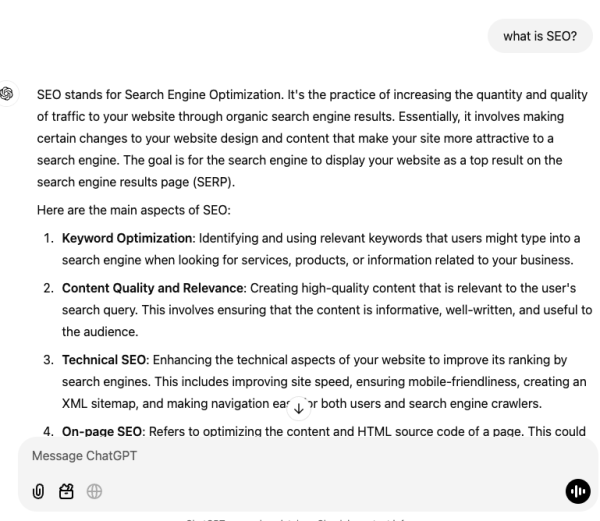
Example2 (search that returns a mix of text and images):
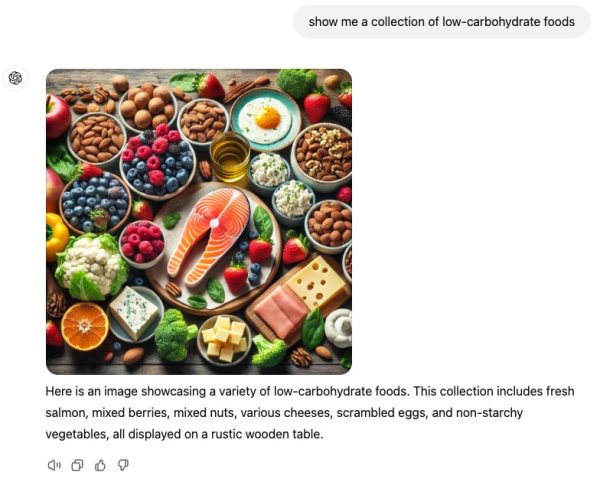
There is no benefit to website owners when AI borrows content or answers from websites without providing a reference back (e.g., a link, contact information, or at least a brand mention). While ads might be served in such cases, there will be no SEO benefit. For that reason, I will not elaborate further on how linkless or reference-free results can help your business.
AI Search With Links and Referenced Back Results:
Referenced back results are results that may not have a blue link but include a reference back to a business or a brand. This could include the name, phone number, address, or more.
Example1 ChatGPT Referenced back results:
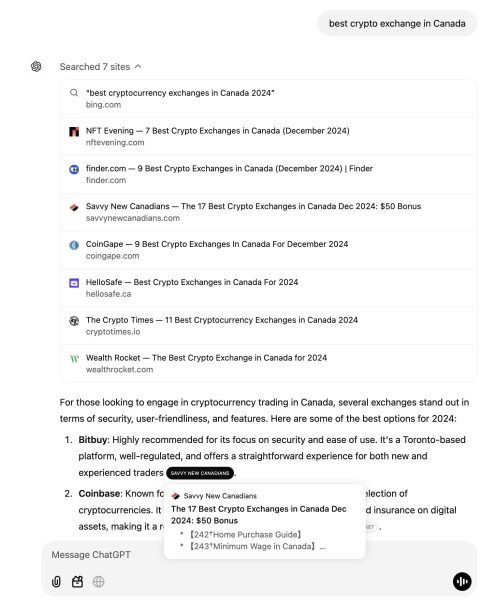
In this case, there is no link back to the website; however, there is a link to the source in the results (there is a reference back which is the brand mention). If you expand on the searched websites, you can see that ChatGPT is using citations and backlinks to collect results.
Example2 ChatGPT Linked Back Results:
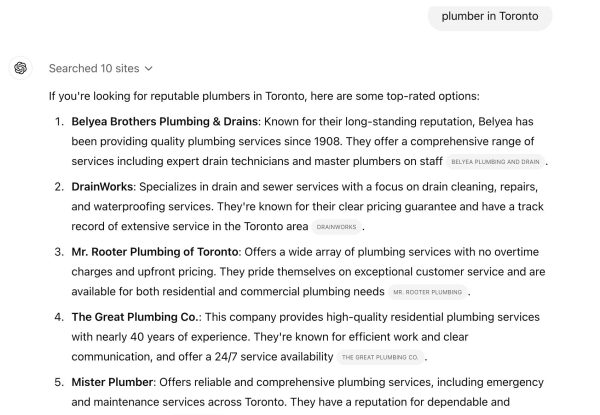
In this case, ChatGPT is linking back to the website in the result (like any traditional search engine). If you click on the searched results, you will find that Bing results are being used in this instance.
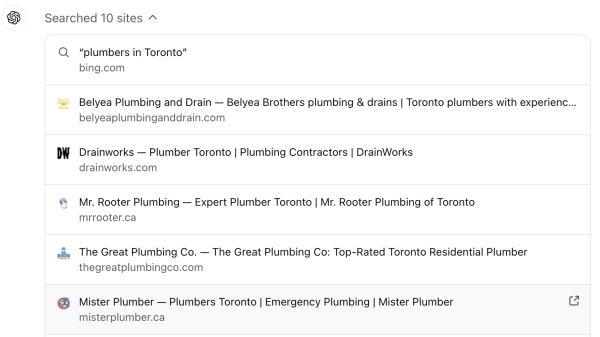
In both examples above, ChatGPT functions like any other search engine, relying on useful content and reputation to return and rank results.
ChatGPT's search engine has its own crawler. It returns results by analyzing content across the web and ranks them using an algorithm that functions similarly to other search engines' algorithms. ChatGPT's own search (or if powered by Bing) relies heavily on off-site factors (referred to as citations or links) in its ranking algorithms.
Off-page factors are necessary in any algorithm. The same piece of content could be placed on 1,000 different domains. For some domains, it will rank on the first page; for others, it will rank nowhere. The biggest differentiators are Trust/Authority/Reputation (off-page factors). For that reason, off-page factors are normally an area of focus for any SEO project we work on at Search Engine People.
Timeless & Unchanging SEO Fundamentals
Any search engine works as follows: Discover >> Crawl >> Index >> Ranking Algorithm (quality classifier) >> Results
Optimizing for search engines will always involve focusing on the three points below:
- Trust/Authority/Reputation: This is the most important ranking factor, but also the most difficult to achieve. The best approach to reaching that is to employ effective marketing that starts with producing high-quality content and promoting it across various channels that provide, preferably, a link back or, at the very least, a citation in the form of a mention or content sharing.
- Great content that is useful for users: This is not particularly difficult for marketing pages, but producing consistent, high-quality content to achieve subject matter expert status can be both expensive and time-consuming. It requires regularly publishing quality industry-related information.
- User and crawler-friendly websites: Modern CMS platforms, combined with increased knowledge in the web development community, ensure that websites are optimized for crawlers without the need for intervention from an SEO provider. Additionally, advancements in search crawler evaluation have further enhanced this process.
Keep Eye On Market Share:
Monitoring market share will become less important if you focus mainly on content creation and good marketing, where you will succeed with any technology that analyzes and ranks content. Having said that, it is always recommended to check search market share. There will always be studies that can provide insights around this. Check the chart below to find the search engine market share as of October 2024:
